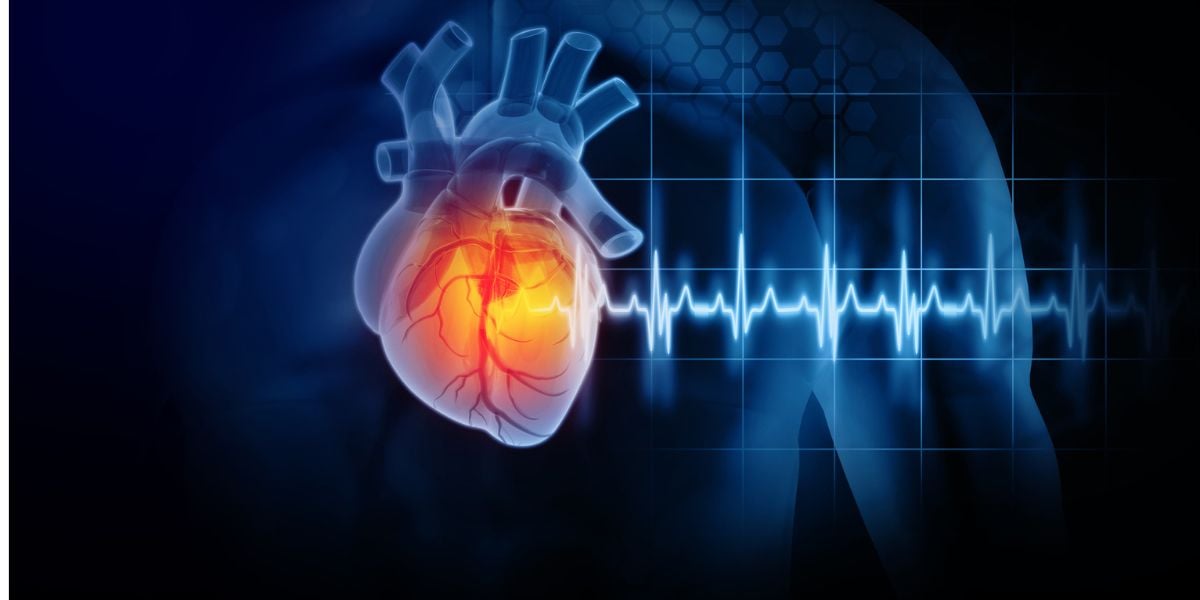Angina is a condition in which the heart cannot receive sufficient blood, causing symptoms such as tightness in the chest to occur.
Angina is a common health condition, particularly over the age of 55 and having type 2 diabetes presents an additional risk factor.
How common is angina?
Angina is a common heart condition that affects:
- 1 in 12 men and 1 in 30 women aged 55-64 years old
- 1 in 7 men and 1 in 12 women over 65 years old
The different types of angina
There are two main types of angina that commonly occur:
- Stable angina is where symptoms of angina come on following a trigger which can typically include exercise or in response to a stressful situation.
- Unstable angina is said to be present if the symptoms occur without any clear trigger
The two main types of angina also differ in that the symptoms of stable angina will usually improve following medication and a period of rest, whereas the symptoms tend to continue in unstable angina despite resting.
Symptoms of angina
The main sign of angina is heavy, dull or tight feeling in the chest.
This feeling may also be felt as spreading out to surrounding parts of your body such as your stomach, back, arms and neck.
You may also experience additional symptoms including:
- Breathlessness
- Fatigue
- Nausea
- Dizziness
Causes of angina
Angina caused by narrowing of the two main coronary arteries, which supply each side of the heart with oxygen and nutrients.
Narrowing and hardening of the arteries is known as atherosclerosis.
In stable angina, an activity such as exercise increases the demand for blood to feed the heart muscles. If you have narrowed heart muscles, blood flow may be restricted to the point whereby not enough blood can get through to the heart causing the signs of angina to show.
The signs of unstable angina occur if a part of a plaque breaks off and causes a blockage in the arteries of the heart.
A plaque is a substance, made up of fat, cholesterol and calcium, that can build up within the lining of the arteries.
Diagnosing angina
If you notice chest pains of feelings in the chest consistent with angina such as a dull ache or, tightness or heaviness, then you should see your doctor who will ask you questions to help form a diagnosis.
The questions your doctor will ask will also help to determine which type of angina you may have.
If angina is suspected, your doctor may refer you for one or more of the following tests:
- ECG – electrocardiogram
- ETT – exercise tolerance test
- Coronary angiography
- MPS – myocardial perfusion scintigraphy
Treating angina
A medication called glyceryl trinitrate, or GTN for short, is a common treatment for angina that can be taken if you get the symptoms of an angina attack. The medication works by temporarily widening the coronary arteries, allowing blood to get to the heart and therefore reducing the pain as well.
GTN can be taken in either spray or tablet form.
If you have stable angina and commonly experience symptoms during certain activities you may be advised by your doctor to use GTN as a preventative measure against an angina attack.
There are a number of other ways in which angina may be treated and these may include:
- Blood pressure lowering medication
- Statins
- Low dose aspirin (if you are not allergic to aspirin)
- Coronary artery bypass graft (CABG) surgery
- Percutaneous coronary intervention (PCI) surgery – also known as coronary angioplasty, in which small tubes, called stents, are used to widen coronary arteries
Preventing angina
The best way to prevent angina from developing is to live a healthy lifestyle that includes:
- Taking exercise frequently
- Having a healthy balanced diet that is not overly reliant on processed food
- Having a low alcohol intake
- Not smoking
Angina may also be brought on by stress and therefore therapies that help to reduce stress, such as yoga and mindfulness, may be particularly useful.







